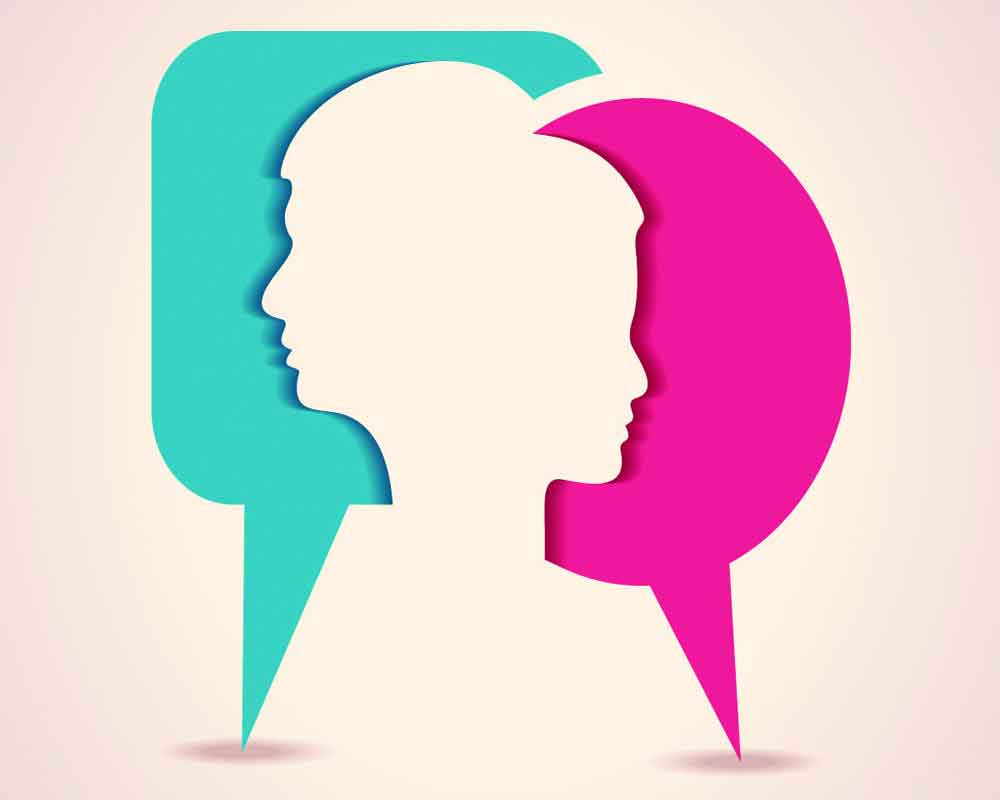Disparity between males and females on the basis of their sex is not only unjust, but also unscientific. It's time we de-hyphenated jobs from gender
If a poll were to be conducted asking individuals if they had ever experienced some form of discrimination because of their biological sex or gender identity, then chances are a good number of respondents will answer in the affirmative. Whether it is one's emotional intelligence, ability to do a task, leadership qualities, career options or behavioral aspects like compassion, there are entrenched stereotypes with respect to what males are good at and what females are good at. It’s time we questioned all these prevalent notions.
After all, despite extensive research, scientists haven't been able to clearly establish a relationship between genes of Y chromosomes with behavior patterns of human beings. The Y chromosome is the smallest of the chromosomes with barely 340 odd genes, whereas the X chromosome has more than 1500 genes, clearly indicating that genetically there is little difference between the sexes. The bearing of these differences on psychological aspects of males and females has not been clearly and scientifically established. Furthermore, whatever slight difference, if at all there is, can be easily offset by environmental factors and the milieu a person inhabits. Thus, disparity between males and females on the basis of their sex is not only unjust, but also unscientific. It is then safe to say that gender is a social construct.
Right from childhood, we are told to view people in the binary of male and female. Society has associated certain traits and acts as manly and others as more feminine. The stereotyping of how different genders must conduct themselves is so prevalent and ingrained in our minds that any aberration from it is mocked at. Simple adjectives like ambitious, strong, fragile, gutsy, meek, coward, pragmatic, caring, brash, aggressive, bold and others are associated more with a particular sex. For instance, it is okay to call a woman meek, but the same adjective given to a man is likely to be viewed as an affront. If a woman calls herself ambitious, it invariably manages to raise some eyebrows. If a man cries in public, a question is raised on his manhood. If a woman leaves her child home to work, she is labeled as irresponsible and selfish. And if a man helps in house chores, he is viewed as less of a man. There are many other systemic issues also like pay disparity, unequal cerebral opportunities, discrimination at workplace when it comes to promotion and responsibility assigned - all of these stem from the existing stereotypes.
For the sake of validation and to be accepted by society, some of us even curb our self expression. To explain this, there are many among us who are male by birth and feel like dressing up in a blouse and a saree. There are women who like to sport a boy cut hairstyle. The question is are these people able to express themselves the way they want without fearing judgment? It is clear that all stereotypes revolving around gendered roles and expressions are undoubtedly doing a great disservice to so many individuals who probably without even realizing it are struggling with the feeling of incompleteness and confusion in their heart and mind. According to WHO, Gender identity refers to a person’s deeply felt, internal and individual experience of gender, which may or may not correspond to the person’s physiology or designated sex at birth. Gender is a social construct. Similarly according to a Harvard study, People typically begin developing a gender identity in early childhood, around the age of 2 or 3. Gender identity develops within multiple social contexts: a person’s family, their larger community, and the society and historical time in which they live.
However, there are some positive changes that are happening in many spheres. It's indeed a welcome step that jobs in the armed forces have been made sex neutral. We just witnessed a gender neutral fashion fest at Golden Globes 2023.
It's time we de-hyphenated jobs, opportunities and preferences of individuals from their sex. What we also need to understand is that different individuals emote in a different way, and this is where the science gets interesting. We are prone to viewing compassion through a feminine lens. This explains why some of us may completely miss noticing the ways in which males try to alleviate suffering. In fact, if you were to ask a neuroscientist to distinguish a male from a female brain, they would have a difficult time doing so.
Regardless of one’s sex, an individual should have a conducive environment where they can feel safe in expressing themselves the way they want. The prevailing stereotypes revolving around men and women should be abolished so that nothing inhibits their growth and creative expressions.
One can say that indeed no matter how educated, progressive and egalitarian one is, the first and foremost quality one needs to inculcate or have is the sensitivity and the willingness to question one’s existing beliefs. Social conditioning is such a thing that can rob our consciousness of the ability to question the status quo and make us immune to alternate viewpoints, rendering them bogus without paying any heed to them. It's time to change that and become a more inclusive society. That is only possible when we embrace and respect individuals for who they are and let them come into their own and find their expression.
(The author keenly follows news pertaining to women's rights & writes to shape opinion on social and environmental issues. The views expressed are personal)

























